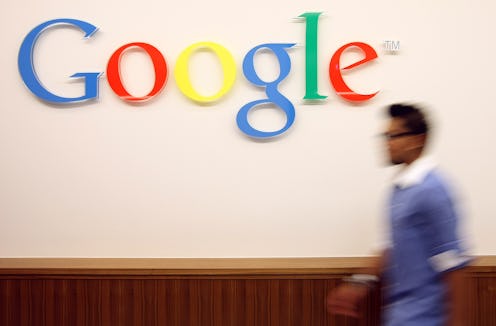News
Tech Giants Now Care About Your Privacy
Amid news that the NSA is even hacking video games these days, the biggest tech companies have banded together against the limitless surveillance practiced by the United States government. Apple, AOL, Facebook, Google, Microsoft, Linkedin, Twitter, and Yahoo joined forces to bring their grievances directly to the president and key members of congress through an open letter published on Monday. In the letter, the companies urged the government to be transparent, to collect information responsibly, and to respect the free flow of information through the internet.
The letter was posted online at ReformGovernmentSurveillance.com. "The balance in many countries has tipped too far in favor of the state and away from the rights of the individual — rights that are enshrined in our Constitution," the eight tech companies wrote. "This undermines the freedoms we all cherish. It’s time for a change."
Their concerns arose after former National Security Agency contractor Edward Snowden released details of secret NSA surveillance programs to journalists at the Guardian and the Washington Post over the summer. The revelations showed that the NSA was collecting email subject lines and contact lists from users of the tech companies without warrants by circumventing the law and collecting them at access points outside the United States. Other revelations also showed that the U.S. intelligence operatus monitors the governments of allied states, tracks phone call metadata, and may have the ability to monitor phone locations even when the devices are turned off.
As early as September, Facebook founder and CEO Mark Zuckerberg had spoken out against the NSA surveillance programs. "I think the government blew it," he said. The government had also pressured tech companies into releasing information for national security requests, and then issued gag orders to prevent them from speaking about it. "If you don't comply, it's treason," said Yahoo! CEO Marissa Mayer.
The open letter lists the five requests tech giants have.
1. Limiting Governments’ Authority to Collect Users’ Information2. Oversight and Accountability [for the intelligence agencies]3. Transparency About Government Demands4. Respecting the Free Flow of Information5. Avoiding Conflicts Among Governments
At the same time, it's clearly the first step in a conversation, with the expectation that talks between the government and the private sector will follow. However, given the secrecy of the NSA's operations, and the fact that even the topmost echelons of government have been kept in the dark, it's far from certain that the letter will have any impact.
In the meanwhile, the companies promise to keep our private information safe by "deploying the latest encryption technology to prevent unauthorized surveillance on our networks and by pushing back on government requests to ensure that they are legal and reasonable in scope." That means putting more safety features on cloud storage, which has been a primary access point for unauthorized surveillance.
Though I like my Gmail and my Facebook free, I'd be more than happy to pay a small sum to keep my data more secure.
